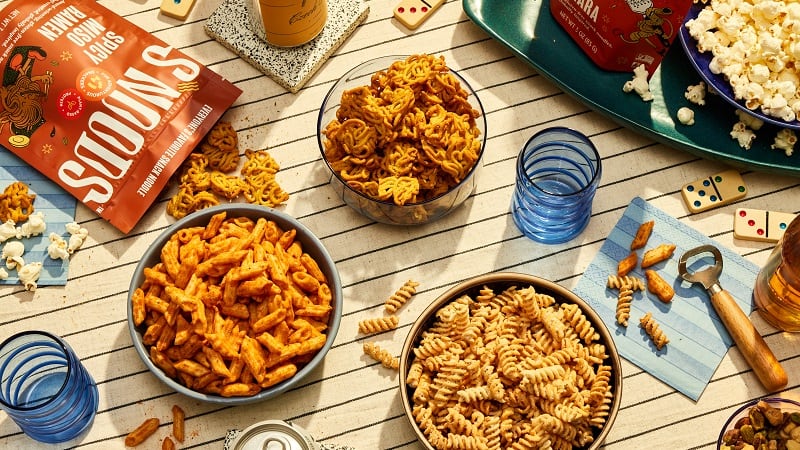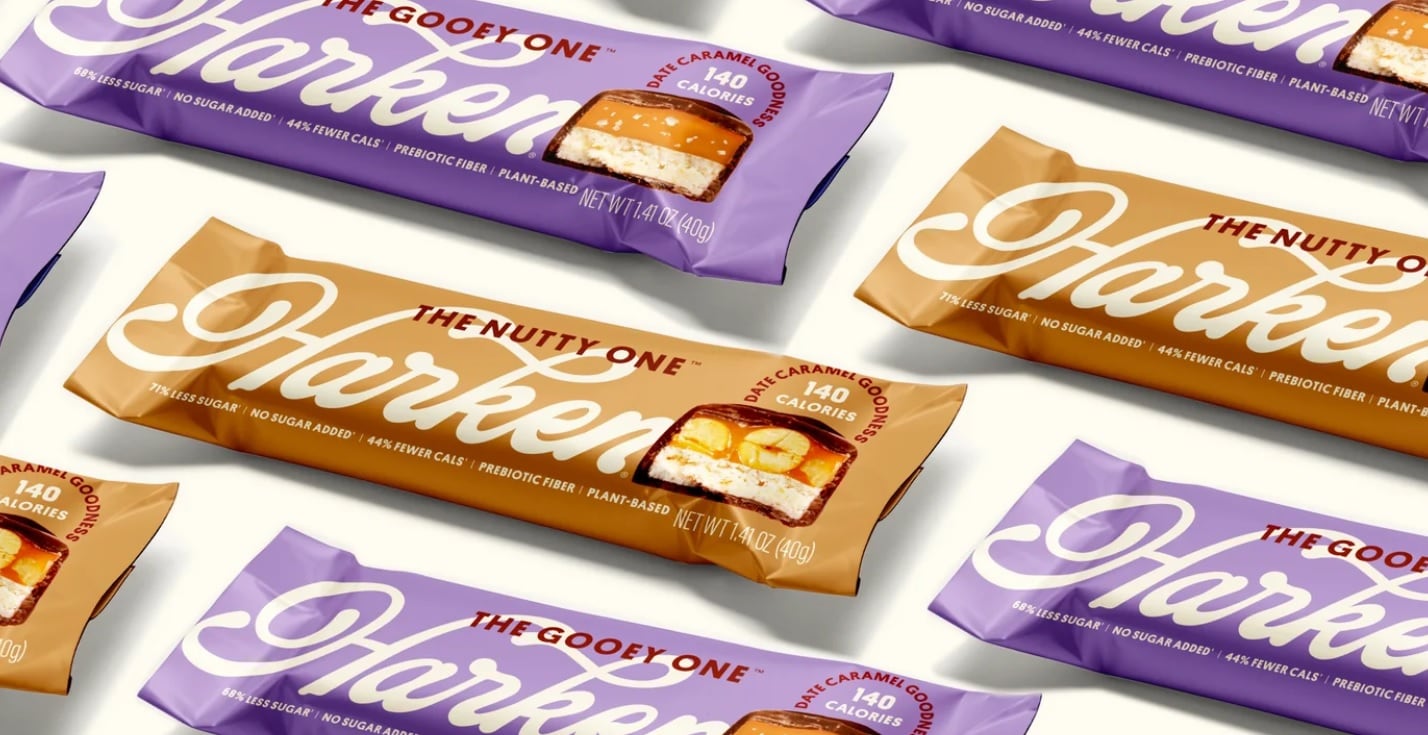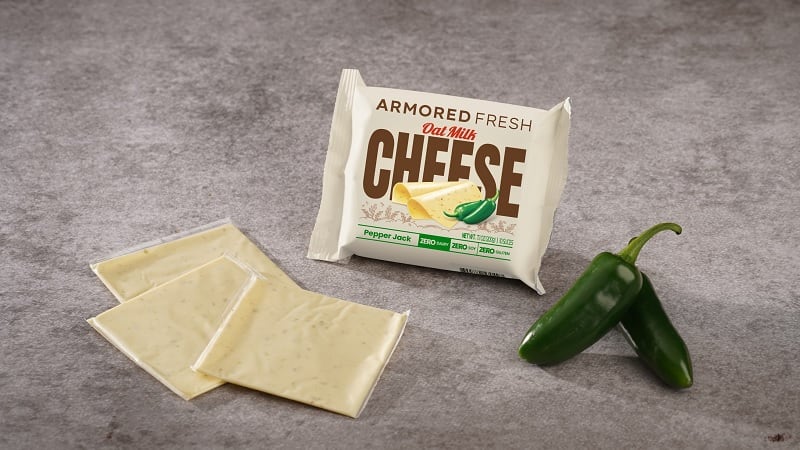Inspired by ’90s “gross-out” culture, which embraced weird and disgusting as attributes of uniqueness to be celebrated, Rotten’s brightly-colored and chaotic branding paired with its “sickeningly delicious” lower-sugar gummy worms aim to bridge a disconnect between “a lot of lifestyle groups” and the perception that healthy and sustainable are boring – or worse: limiting.
And in doing so, the young brand is brining back to the candy aisle consumers who left for health reasons but who are turned-off by diet-culture or the idea of denying what they want, and possibly by extension who they are.
“What we do is make candy that is both better-for-you and better-for-the-world. So, our gummy worms have 60% less sugar than the leading brand, and no artificial sweeteners and no sugar alcohols. And on the better-for-the-world side, all of our packing is designed form compostable materials, and all of the paper resources come from FSC certified forests,” CEO Michael Fisher told FoodNavigator-USA.
But those are not the main marketing points, he emphasized. Rather, he says, Rotten was built to “standout and win in the snack aisle” with branding focused on 1990’s gross-out culture and the motto “feed your freak.”
‘Feed your freak’ is an invitation to a more diverse consumer base
Fisher explains that the company’s tagline is “our call to really embrace your eccentricities, embrace your weirdness,” which aligns well with the fun colors and crazy shapes of traditional candy.
“Some of the lower sugar products on the market, they felt at odds with what I was looking for from a brand. … I am someone who wanted a better option, wanted reduced sugar, but I didn’t want to be made to feel like I was dieting or that I was eating a health food,” and that is a concept that appeared over and over in the company’s consumer research, Fisher said.
He explained that he wanted a low-sugar candy for personal reasons but also because “the vast majority of Americans … are looking to reduce their sugar intake, and there’s really good reason for that: one in four young people in the US have pre-diabetes and that rate is only growing.”
At the same time, he added, “people want their indulgence. They want a treat. And so there is a real health need and a desire from people for a reduced sugar product like ours.”
Many of the existing health and sustainability brands of the past 10 years, however, do not align with the values of many lifestyle groups, Fisher said.
“We saw a really big disconnect on the brand side between these legacy junk food brands and a lot of the newer, healthier options. And we created Rotten to disrupt that specifically. So, my big goal is that we can play a big part in the next generation thinking that sustainable or healthier reduced sugar products can actually be cool and fun,” he said.
And so far, the company’s strategy is working, he added. He explained that children gravitate towards the bright packaging and the company’s green monster mascot, Franky Freak, but parents feel better about the nutritionals and sustainability angles.
Likewise, Fisher said, the brand resonates well with millennials who are nostalgic for the 1990s and the “Liquid Death customer,” or alternative lifestyle groups who are into tattoos, extreme sports and e-gaming, and who are often heavily targeted by legacy brands but overlooked by newer health brands.
Everything in moderation: The case for reduced sugar vs no sugar
Just as important to Rotten as the packaging is what is – and isn’t – inside each bag: namely, less sugar but also no sugar alcohols or artificial sweeteners.
To reduce the sugar in Rotten’s worms by 60% compared to the leading competitors, the company chose to formulate its gummies with allulose, which offers health and functional benefits compared to other sweeteners.
Fisher says he was drawn to allulose in part because it delivers a sweetness without off-notes, but also because it does not spike blood glucose the same as traditional sugar.
Allulose also offers better bulking compared to other high-intensity sweeteners, Fisher said. He explained that because it is 70% as sweet as sugar it can replace more bulk than stevia or monk fruit, which are used in much smaller amounts and often paired with fiber as a filler.
While Fisher acknowledges most Americans need more fiber in their diet, providing a high dose in a small serving of gummies can lead to digestive discomfort or make the candy feel more like a supplement.
“How we have approached R&D is everything in moderation. So, from a sugar perspective, we are less than 10 grams per bag, we’re 60% reduced, but we are not in a race to zero because we want the product to taste great and we don’t want to pack it full of something that is going to make you feel equally bad – like too much fiber,” he said.
Using allulose did change the texture of the gummies compared to their conventional counterparts so that they are less sticky. Rotten is up front on its website about this difference, noting the texture is “like if creepy crawlers got a fruit snack pregnant,” which means it “won’t stick to your teeth!”
Fisher said that in the next few months the brand plans to include some texture modifications.
Intentional distribution in retail bolsters online sales
Within months of launching, Rotten could be found in select Foxtrot and Hy-Vee stores as well as smaller, independent stores, but as Fisher explains these early retail wins serve more as test locations and the brand’s primary focus for now is online.
“We are seeing a lot of inbound interest, and we felt like those partners made a lot of sense for us to start to prove out some of our retail hypotheses,” including that Rotten would be additive and not dilutive to the set, Fisher said.
But, he adds, the company doesn’t want to overextend in retail too early. As such, it will focus on e-commerce for the next 12-24 months, he said.
Rotten will support its online and limited in-store sales with new video content and online brand building to cultivate a following not just for the candy but the larger company.



